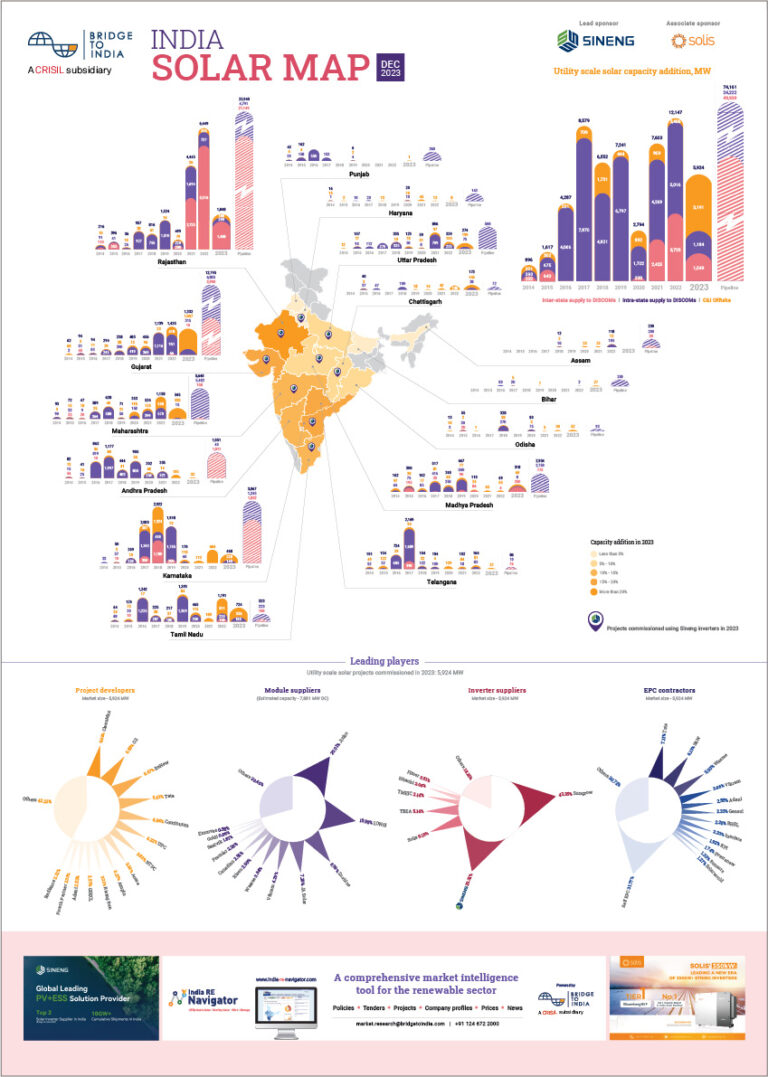Barely two weeks ago, after being challenged by the Tamil Nadu Spinning Mills Association and Tamil Nadu Electricity Consumers’ Association, the Appellate Tribunal for Electricity termed the state’s Solar Purchase Obligations (SPOs) as illegal. Tamil Nadu had an original and rather innovative plan to drive the demand for solar power through procurement obligations on the large consumers in the state. The decision to term SPOs as illegal had the potential to stop the implementation of the state’s solar policy in its tracks.
- Tamil Nadu to tweak the implementation of its policy by shifting the onus of demand creation from SPOs to RPOs
- The earlier SPO mechanism would have helped make solar more market driven
- In the long run, it would be difficult to keep imposing RPO requirements on distribution companies that are already under financial stress
However, Tamil Nadu has now proposed to tweak the implementation of its policy by shifting the onus of demand creation from SPOs to Renewable Purchase Obligations (RPOs). The state has drafted guidelines to increase the solar RPO from 0.5% to 2% for the next two years. This RPO is usually applicable on all obligated entities, i.e., the distribution companies, open access consumers and captive power producers. However, the current draft only makes the RPO mandatory for the distribution companies for the time being. As a stay was granted by the courts on a batch of writ petitions filed by the open access and captive consumers, this means that for now, the demand will only come from the distribution companies. If the draft (refer) is accepted, Tamil Nadu will have the highest solar specific RPO (as a percentage) in the country. The new requirements will create enough demand (approx. 400 MW of solar PV) to cover most of the projects that have been waiting to sign PPAs under the earlier allocation process that has been dragging along for more than a year now.
Now that the RPO will be applicable directly on the distribution companies, the process would work just as it would have under any other state policy and the complication of the distribution company only acting an intermediary would be removed. This new development raises hope for fast tracking the signing of PPAs and making them more bankable through a legally sound off-take. However, this will increase the financial burden on the distribution companies who will presumably have to pass on the impact of the obligations to the same power customers who opposed a direct obligation on themselves.
The earlier SPO mechanism was an innovative tool that could have helped make solar more market driven and would have helped bring in several innovative business models. It would have lifted the financial burden from the distribution companies and would have helped create a market place for solar at the consumer level, where the cost differential between solar and the grid tariff was not very large to begin with.
In the long run, it will be very difficult to keep imposing high RPO requirements on distribution companies that are already in a financial stress, not just in Tamil Nadu but across India. The current turn of events might be a gain for the short term, but perhaps not for the longer term. Nevertheless, the effort of the Tamil Nadu state government to continue to try and make solar work in the state must be lauded.












